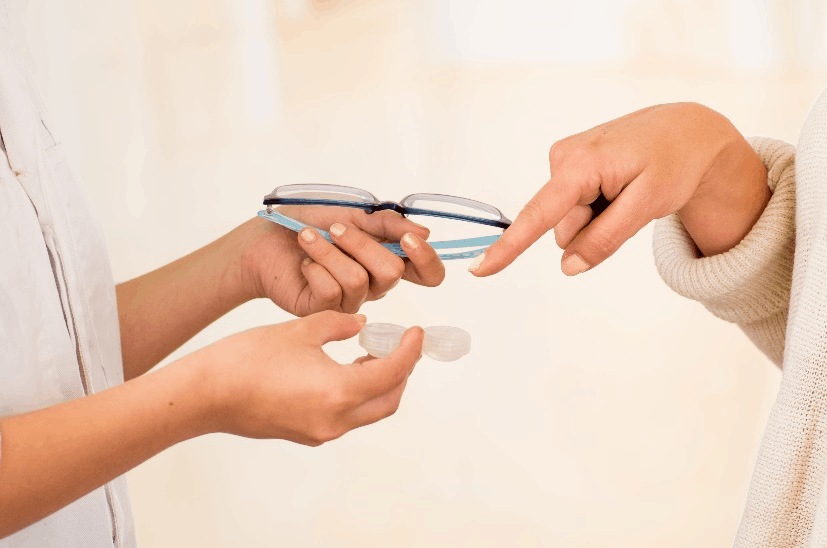Contact lenses are a convenient alternative to wearing glasses. Placed directly on the eye, these small plastic discs correct a range of vision problems, including nearsightedness, farsightedness and astigmatism. They offer a natural field of view, free from frames that obstruct vision, and do not fog up like glasses can.
The comfort, safety and accuracy of your contacts depends on their design and fit. Eye experts at Boston Eye Physicians and Surgeons offer contact lens fittings to ensure the comfort and success of your contact lenses.
Varieties of Contact Lenses
Every eye is unique, and there is not a one-size-fits-all approach to contacts. What feels good to you and meets your needs and lifestyle will differ from what suits other patients. Upon learning about your unique eyes and the quality of your vision, our team can review the available types of contact lenses and recommend the type they feel will work best for you.
There are two primary types of contacts: hard (rigid) lenses and soft lenses.
Soft contact lenses are made from a flexible plastic that allows oxygen to pass through to the cornea. They are considered comfortable to wear and easy to adjust to.
Rigid gas permeable contacts are made from a durable plastic that provides clear vision. They are easy to handle and last longer than soft contact lenses. However, it may take up to a few weeks to get used to wearing these types of contacts; initially, they are not as comfortable as soft lenses.
Contacts may be designed for daily wear, meaning they should be removed and cleaned at night and reinserted in the morning. Others are intended for extended wear and can be worn overnight for up to a week. Disposable contact lenses should be used once, discarded and then replaced with a new pair.
What Happens During a Contact Lens Fitting?

A contact lens fitting with our Boston eye doctors can help you find the type and brand that suits your eyes and lifestyle. Usually a general eye exam tests your visual acuity and your eye health to determine your visual prescription. The process of fitting contact lenses includes taking measurements and conducting tests that are usually not performed during a routine eye exam, all in order to ensure a good fit.
Since contacts sit directly on your eye, the doctor will want to measure the curvature of your cornea, or clear front surface of your eye. These measurements will help ensure that your contacts are the correct size and have the proper curve needed for your eye. If your cornea is abnormally shaped, you may need toric lenses, which have a special design intended to offset these irregularities.
Your pupil and iris will be measured to help your eye doctor recommend lenses that properly fit your eyes. Also, your tear film will be evaluated to look for signs of dry eye. If you have dry eyes, you could benefit from a particular contact lens design.
After the tests are completed and the measurements are taken, you will try on different types of contact lenses and confirm the fit and comfort level. Once you have found lenses you are happy with, they will be ordered. You will also learn about contact lens care and hygiene from the doctor.
Note that there is usually an adjustment period of up to a few weeks, during which you will adapt to wearing the lenses. Our doctors are available to answer any of your questions during this time. You may have a follow-up after your adjustment period to ensure you are happy with your lenses.
Schedule an Appointment With Our Team
To request a contact lens fitting with the team at Boston Eye Physicians and Surgeons, please call or email us today.
Types of Contact Lenses
Hard (rigid) Lenses
- Conventional hard (polymethyl methacrylate, or PMMA) lenses are made of a fairly stiff plastic. They correct vision with no distortion, but they are the least comfortable type of contact lens.
- Rigid gas-permeable (RGP) lenses are more comfortable than conventional hard lenses. Some gas-permeable lenses are designed to be worn overnight and for up to 7 days.
Soft Lenses
- Daily-wear lenses are removed and cleaned at night and reinserted in the morning.
- Extended-wear lenses can be worn for up to a week at a time, day and night. But extended use may be uncomfortable, and it increases the risk of damaging the eye.
- Disposable lenses (daily and extended-wear) may be worn for up to several weeks and then discarded.



